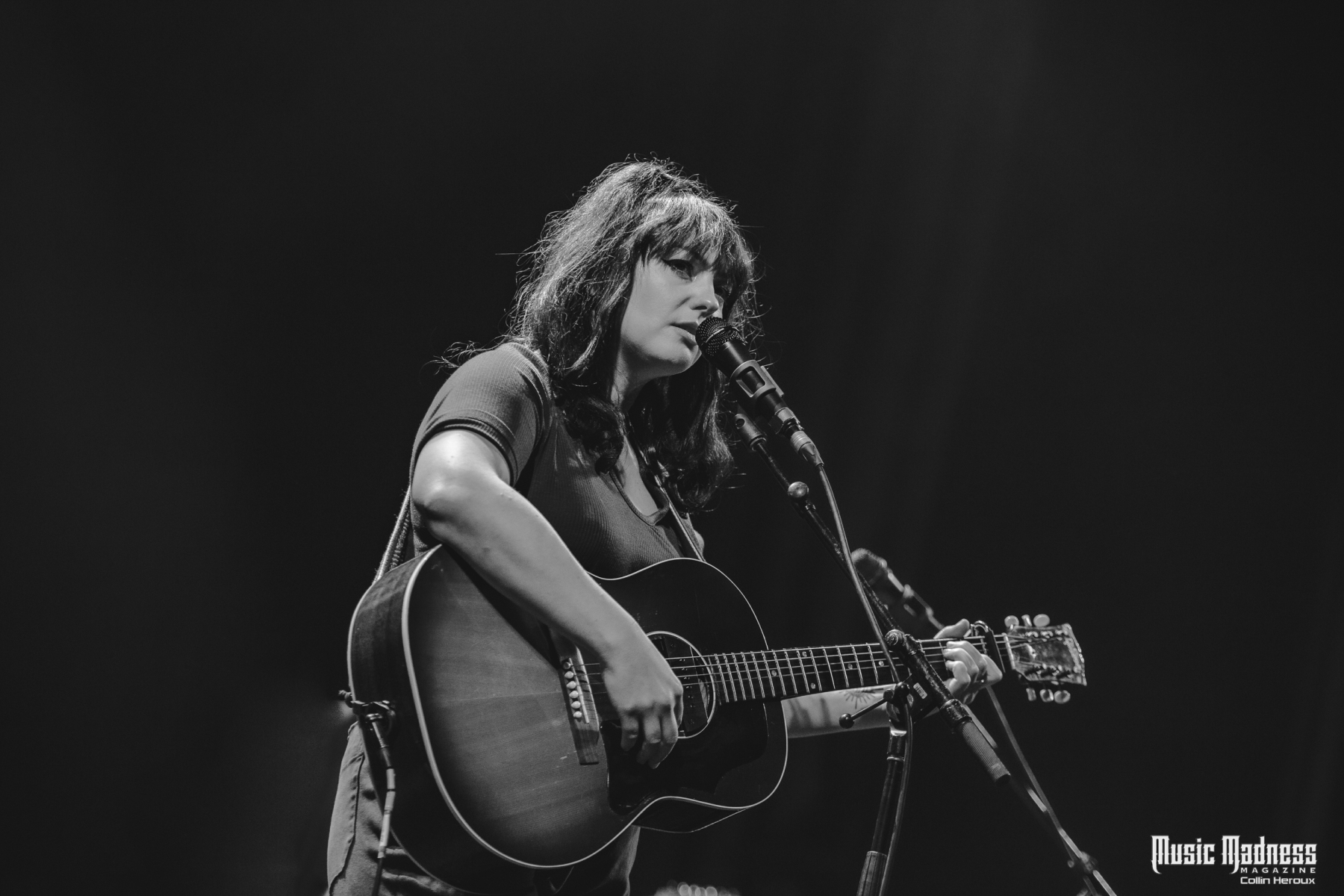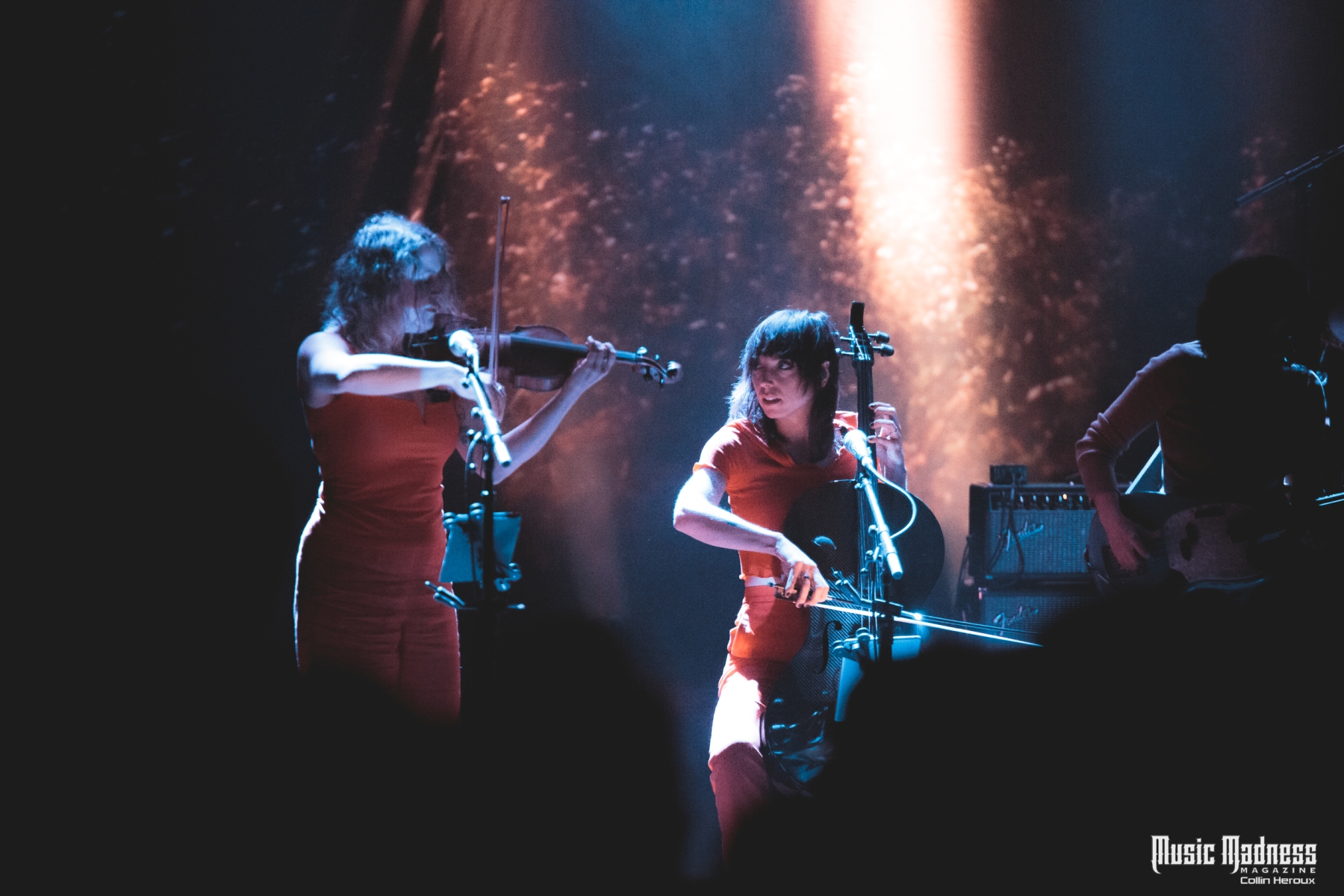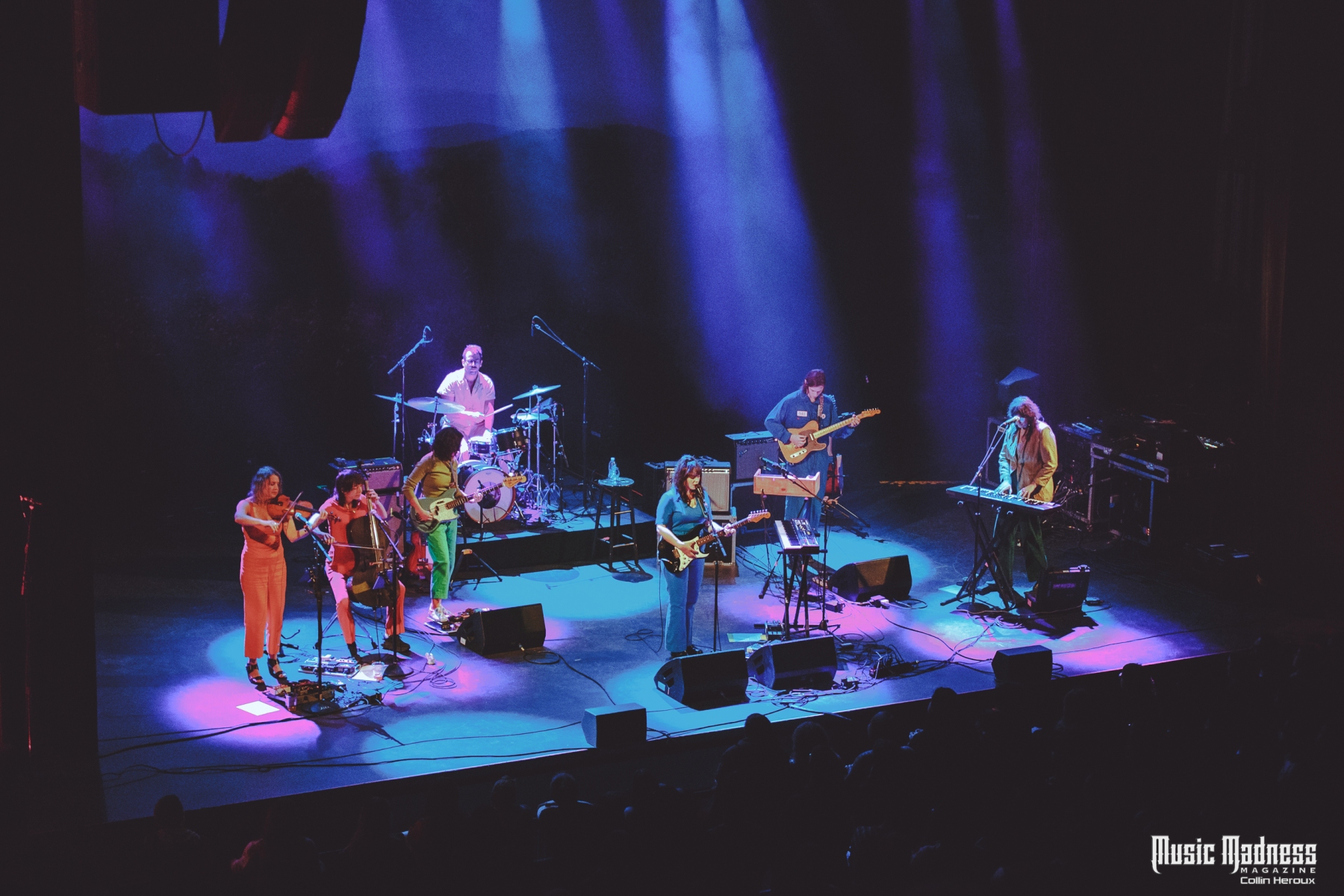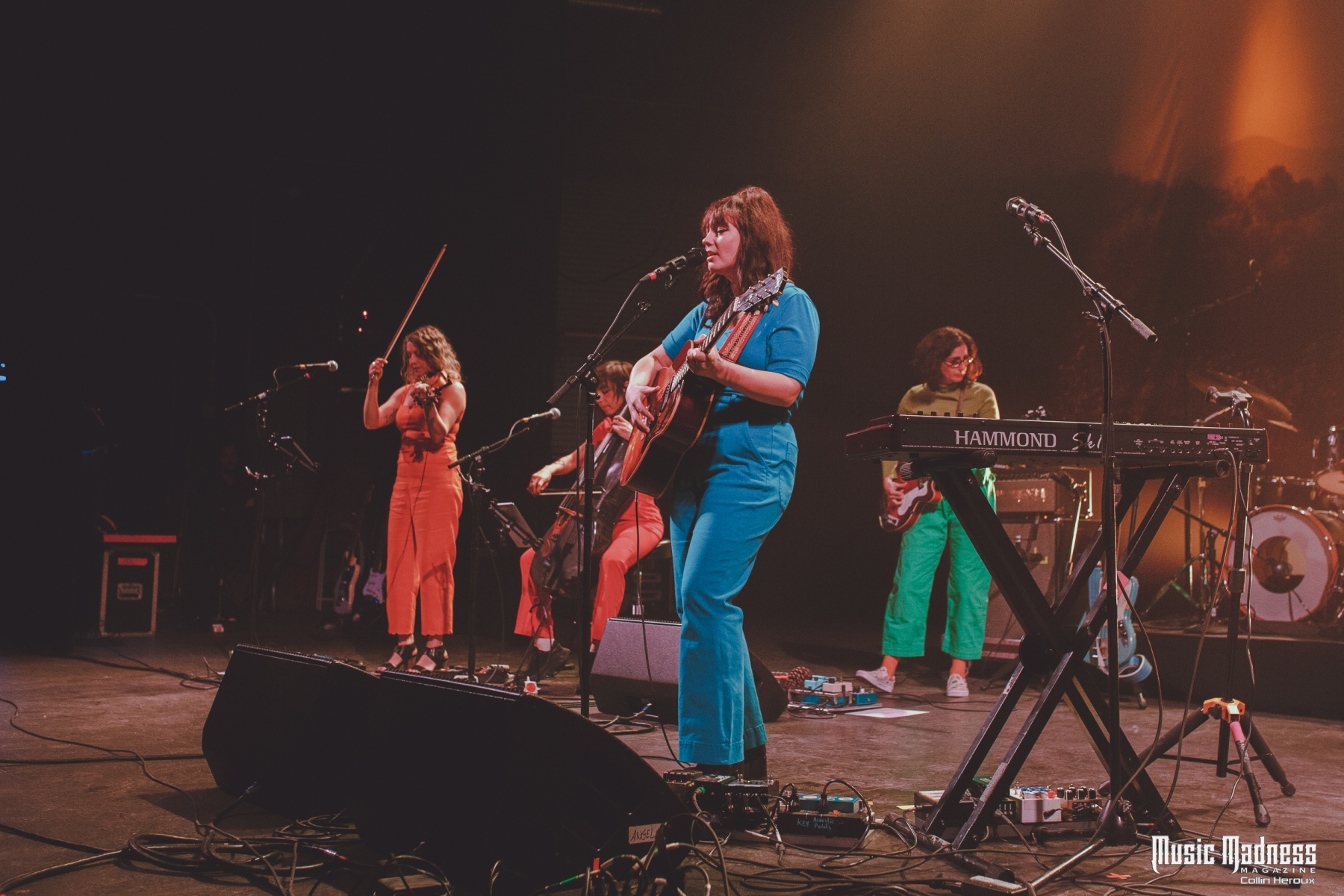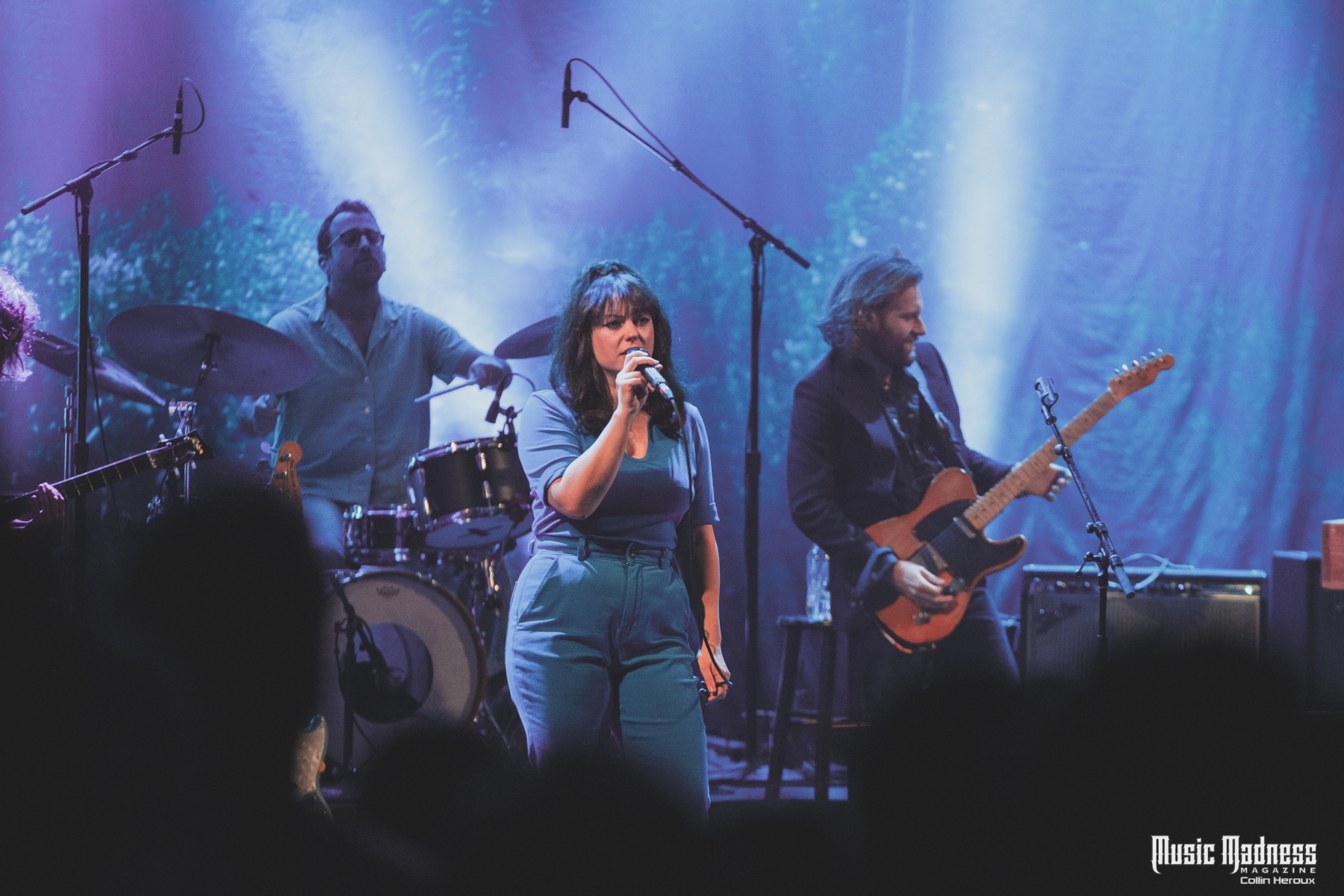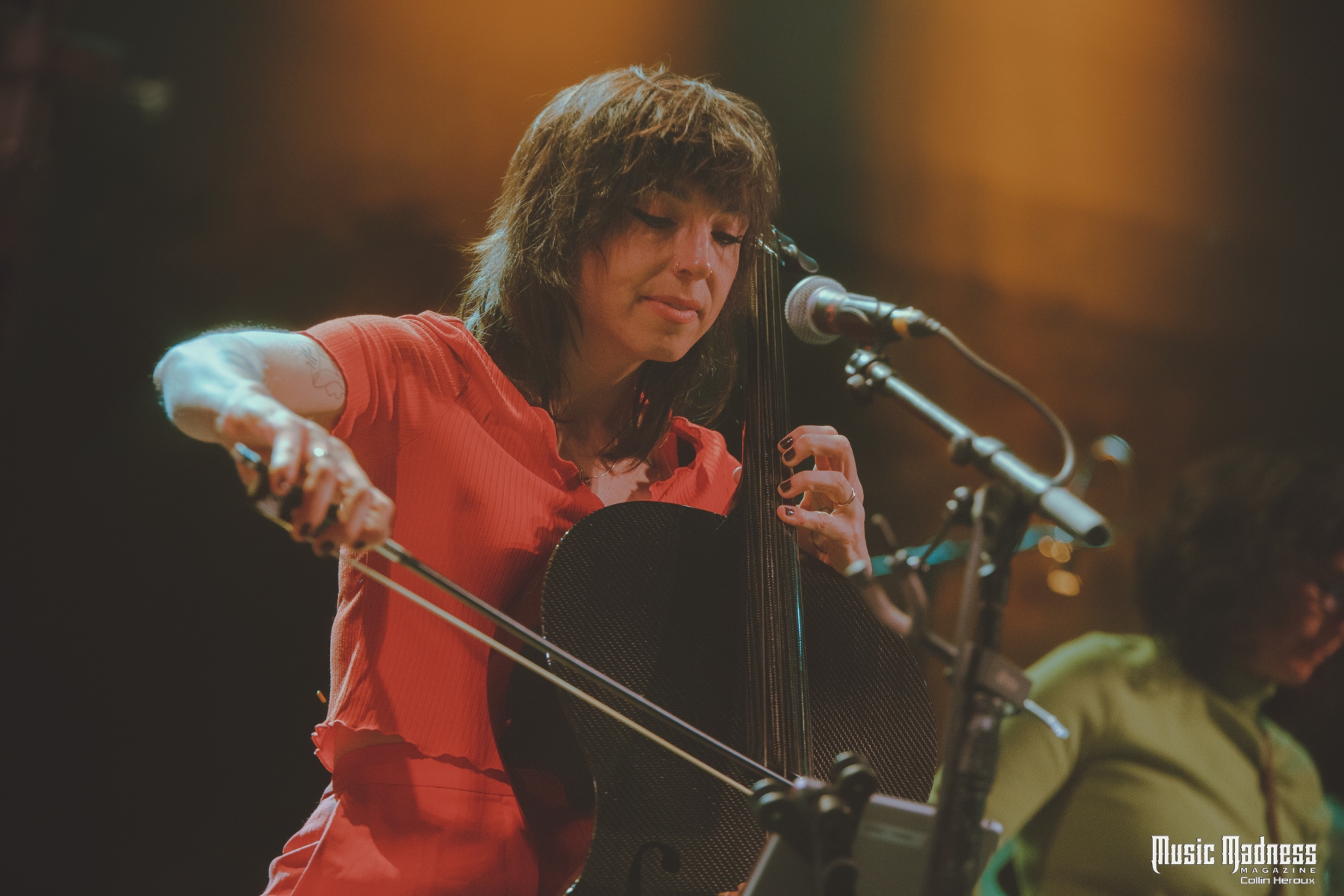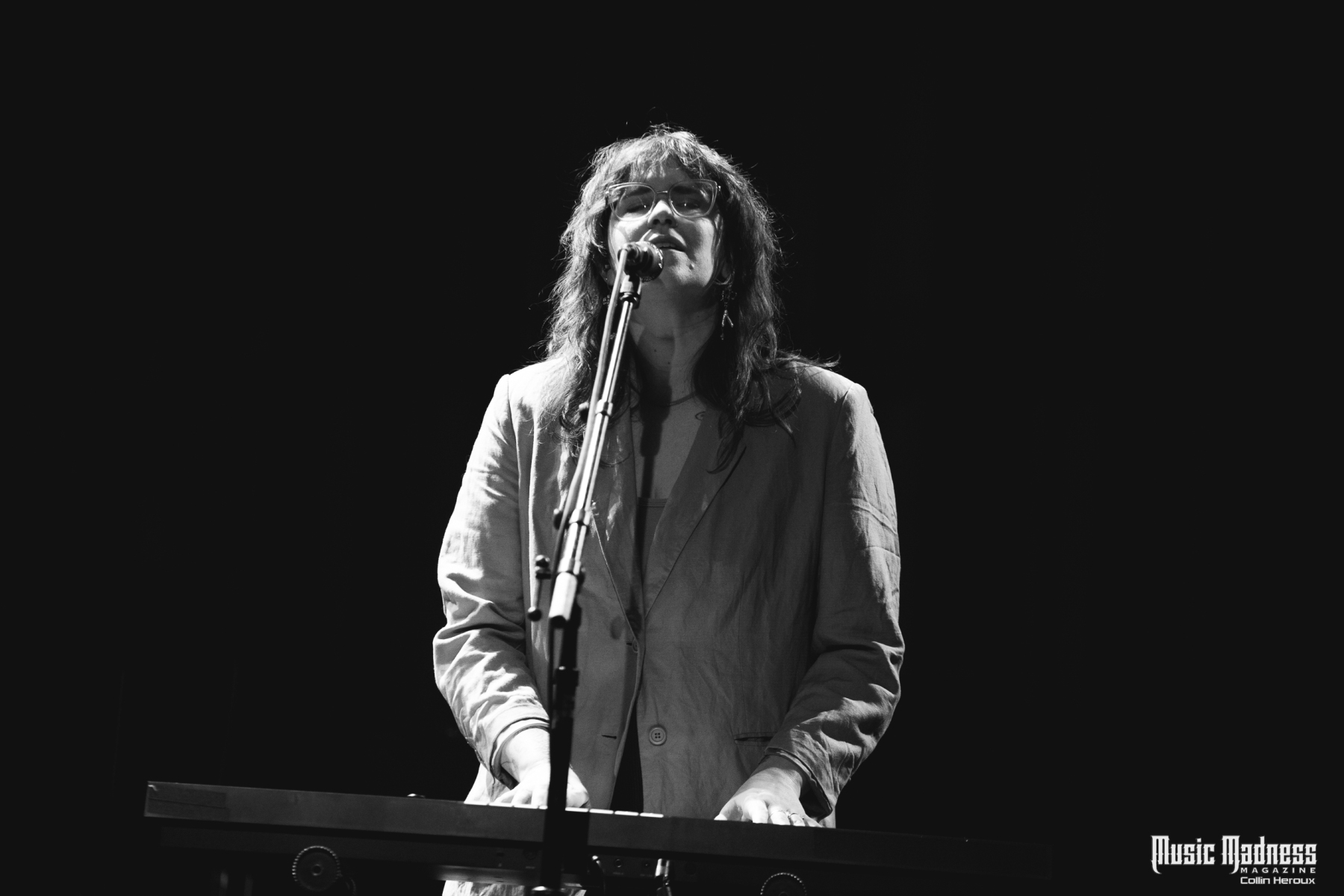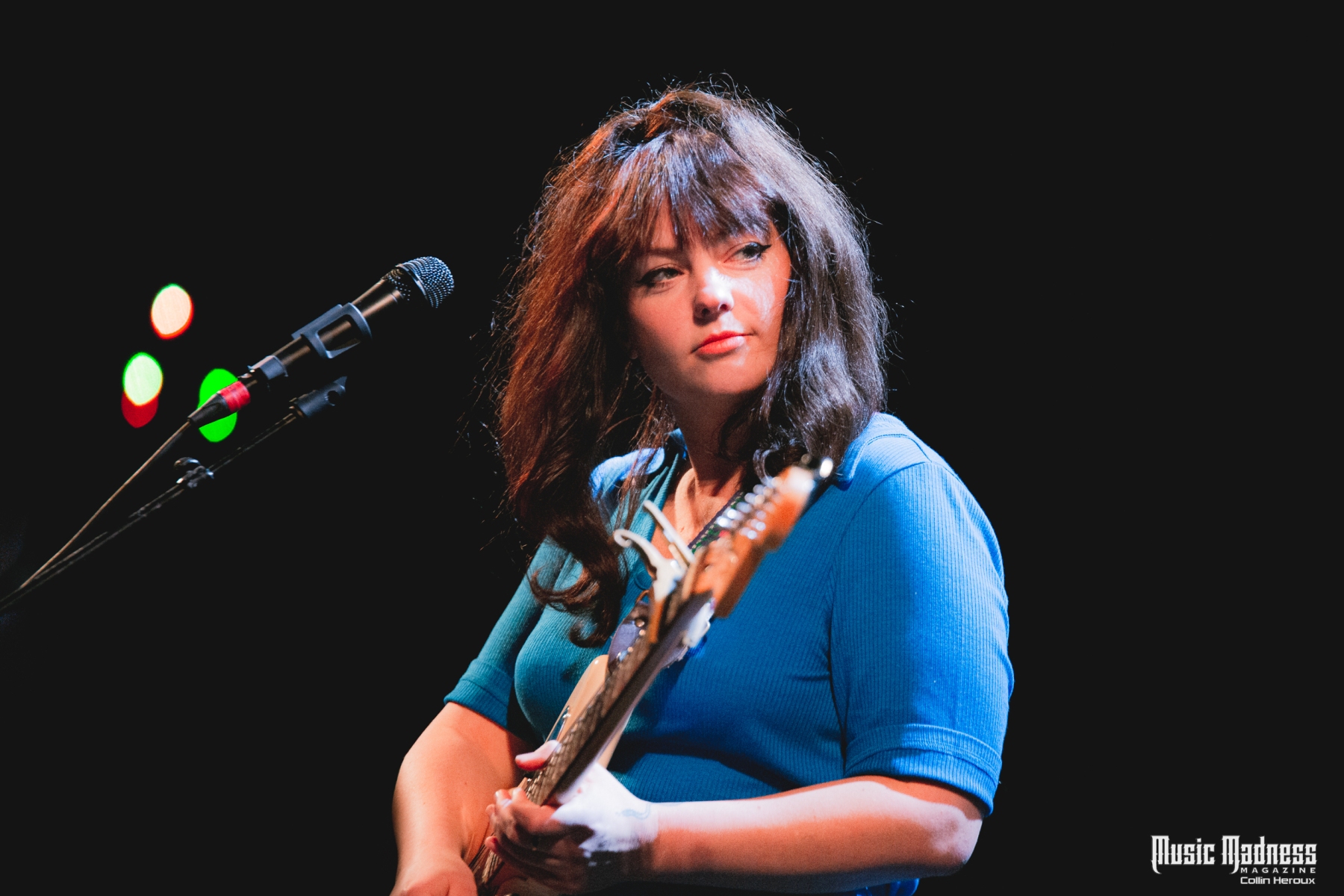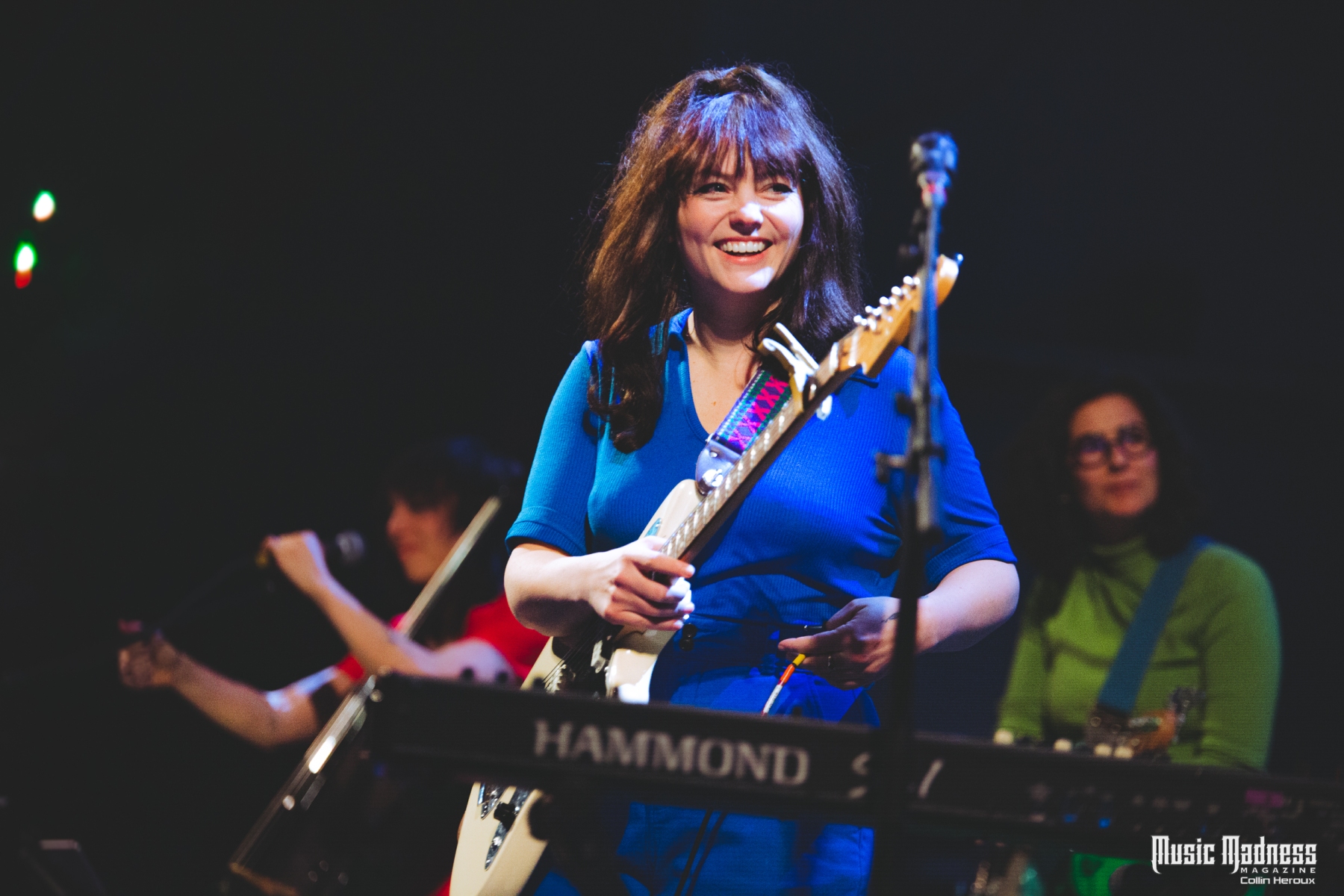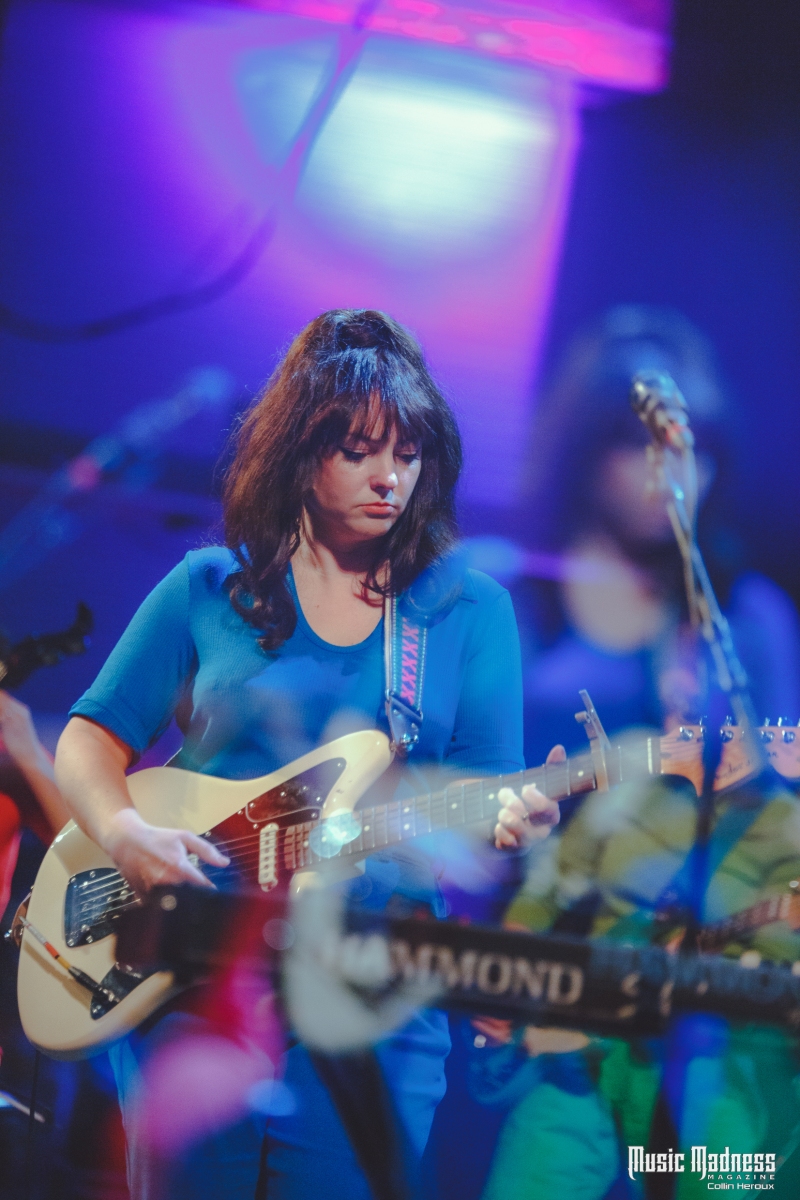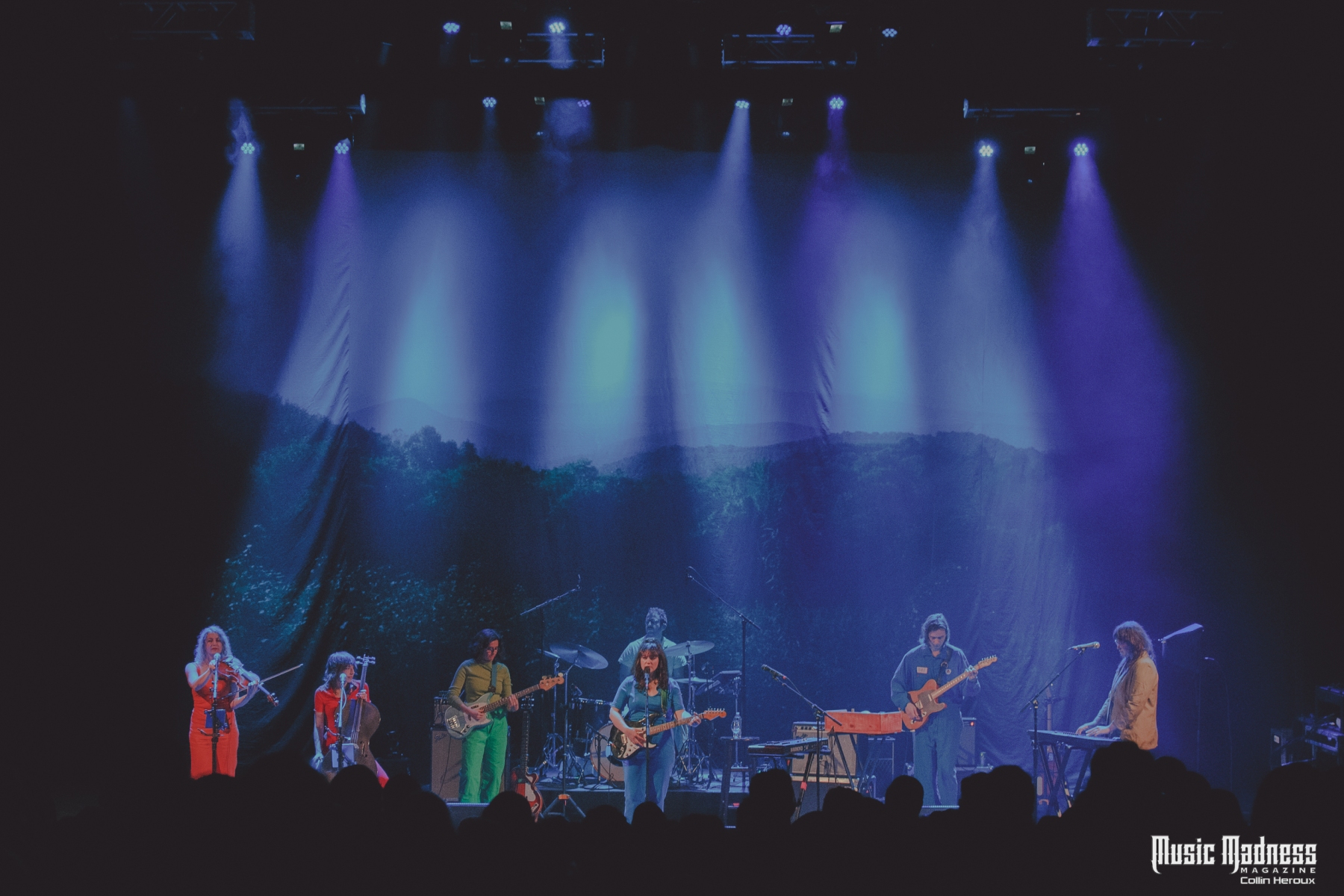
When Angel Olsen released a compilation of rarities, b-sides, and covers called Phases in 2017, the album’s name was fairly self-explanatory. In the prior six years of her musical career, she’d grown and changed from solo, low-fi recordings to the loud, rocking, often very catchy style she employed for My Woman. But ironically enough, Olsen’s apparent definition of herself as an artist going through distinct phases would only become more pronounced in the next half-decade. First came the ornate bombast of All Mirrors, contrasted with the quietude of its sister record, Whole New Mess; then, a surprising EP of 80s covers; and finally, 2022’s Big Time. As we covered last summer as part of Olsen’s Wild Hearts Tour with Sharon Van Etten, this most recent album is a shift into a distinctly country-influenced style, and the newly-christened seven-piece Big Time Band is once again on the road with Olsen, bringing to life the big sound of her last few records.
True to their name, the band begins the night drawing the first four songs of their Connecticut set from Big Time. She quips about being here “around all you smart people,” the music hall but a stone’s throw from the Yale campus. One of the songs in this opening series is ‘Ghost On’, and despite having heard it numerous times, this is the first time it occurs to me that the song has a similar cadence to that of ‘Acrobat’, the opening track from 2012’s Half Way Home. It may be a coincidence, but the songs as a pair can be read as the same person speaking on each side of a decade of lived experience. The version of Olsen from 2012 admires the chaos in the object of her affection, and is willing to imagine herself as a pet rather than a person; years later, she ponders another relationship with a wealth of self-assuredness – not free of questions, but sure of her own strength and worth. She’s the stronger one in this latter case, the one to whom the other might look up; but perhaps that sort of imbalance isn’t necessarily desirable. Similarly unwavering is ‘Right Now’ – this album cycle followed and in some ways outlined for listeners Olsen’s experience coming-out as queer, and to a partner here she delineates the way in which she not only wants to, but needs to, live her life from then on.
Next, Olsen teases a song she claims she wrote the night before, but in reality it turns out to be ‘Shut Up Kiss Me’, one of her most widely-loved songs. “That one’s got real potential,” she says with a smile afterwards. The song comes from My Woman, which with one exception is as far back in her catalog as Olsen looks during the night. Ruminating a bit on playing older material, she says, “Some people prefer it when you’re sad, others prefer it when you’re angry… it’s hard to give everybody what they need,” adding after a pause, “Even less people want you when you’re just fine.” She’s got a sense of humor about it, but across all genres of music there is the fairly myopic tendency to assume that artists make their best art when in distress. But funnily enough, much of Big Time stands in contrast to this notion, as even being born out of loss and personal evolution is clearly a product of love most of all.
Nonetheless, Olsen spends a bit of time in the older, more volatile realm of emotion for the next few songs, starting with ‘Give It Up’. She dedicates the song to couples, and asks if there’s any in the audience – only a few calls come back, which sparks a laugh, and someone shouts out that they just broke up with their boyfriend: “Congratulations on your success,” Olsen says from the stage. ‘Forgiven/Forgotten’ occupies a similar space, and she says that many songs of hers with that emotional palette came out of a period of only listening to short-lived, hard-charging pop rockers The Nerves. The second half of the set contains some of the finest tracks from All Mirrors, Olsen’s 2019 album. She trades guitar for synth on the title track, and soon after, ‘Lark’ puts the strings of duo Emily Elkin and Alex Guy front and center across its epic six minutes of peaks and valleys.
Circling back into more of her newest songs, ‘Go Home’ is book-ended by a gentle percussive intro and outro, like a heartbeat that surrounds the ferocious self-searching in a chorus that describes someone on the cusp of great change, stuck between past and present. “Anyone angry here tonight?” she asks before ‘All the Good Times’, the opener from Big Time. The acrimony here isn’t exactly overt, but the refrain of “Thanks for the free ride / and all of the good times,” here is pointedly dismissive, and Olsen’s lyrics wink towards the fourth wall, thanking this former love for the songs she’ll get out of the ordeal. It hits home for anyone who’s been told they’re not delivering on their end of the bargain, but Olsen here has seemingly realized the (hopeful) conclusion of this train of thought: if someone is always looking for more, eventually one will always fall short of that standard, and there’s not much left to do but part ways and avoid the pitfall of being sorry for not living up to an impossible ideal. One has to imagine the person who called out earlier about their breakup might have found some comfort in these verses most of all.
Olsen’s final song of her main set is ‘Chance’, which closed All Mirrors as well with its huge swells, clearly inspired by classic big-band crooners, awash in strings with a dominant piano accompaniment. Wielding only her microphone, she sings one of the most resounding closing statements in her entire discography, the type of summation that evokes the denouement of a film – not one with a traditional happy ending, but one in which everything preceding has made the protagonist more sure of the next step to take, that one little movement the beginning of a new phase of their personal narrative. The band returns with an additional member on guitar for one final tune, a cover of ‘Without You’ in the style of Harry Nilsson. It’s evidently a favorite of Olsen’s and one that frequently capped nights of the Wild Hearts Tour as well, the perfect time to invite the audience to sing along in what can only be described as a perfectly-fitting companion piece to Olsen’s last few records.

